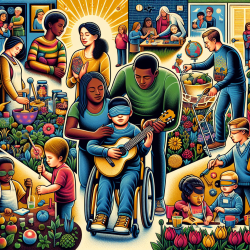As a speech-language pathologist, the pursuit of effective, respectful, and culturally sensitive practices is paramount, especially when working with First Nations communities. The research article "Building A Relationship: Perspectives From One First Nations Community" offers valuable insights that can significantly enhance the outcomes of our work. This blog distills key findings and practical recommendations from the research to help practitioners improve their skills and foster meaningful relationships within these communities.
Understanding Community Development and Cultural Safety
Community development and cultural safety models are central to providing services that are relevant and responsive to the needs of First Nations communities. According to the research, these models emphasize the importance of shared learning and meaning, allowing professionals to build genuine relationships with community members. This approach fosters open dialogue, leading to the development of services that truly resonate with the community's needs.
Key Takeaways for Practitioners
- Connect with the People and the Place: Start by listening and showing a genuine interest in the community. Building relationships takes time and patience.
- Be Aware of the Impact of Past Experiences: Understanding the historical context, such as the legacy of residential schools, is crucial. This awareness helps in addressing the lingering effects on families and communities.
- Learn about the History and Traditions: Knowledge of the community's history and current cultural practices is essential. This understanding helps in creating relevant and respectful services.
- Take Time to Establish Trust: Building trust requires a long-term commitment and participation in community activities beyond professional duties.
- Work with Community Colleagues: Collaborate with community members who can provide insights into family dynamics and community expectations.
- Support Traditional Culture and Language: Show respect and interest in the community's language and cultural practices. This respect fosters a deeper connection and trust.
- Maintain a Supportive and Non-Judgmental Attitude: Compassion, understanding, and a non-judgmental approach are highly valued by community members.
Encouraging Further Research
The insights provided by this research are invaluable, but they are just the beginning. Practitioners are encouraged to engage in ongoing research and continuous learning to further enhance their understanding and effectiveness in working with First Nations communities. This commitment to professional growth and cultural competence will ultimately lead to better outcomes for the children and families we serve.
To read the original research paper, please follow this link: Building A Relationship: Perspectives From One First Nations Community.










